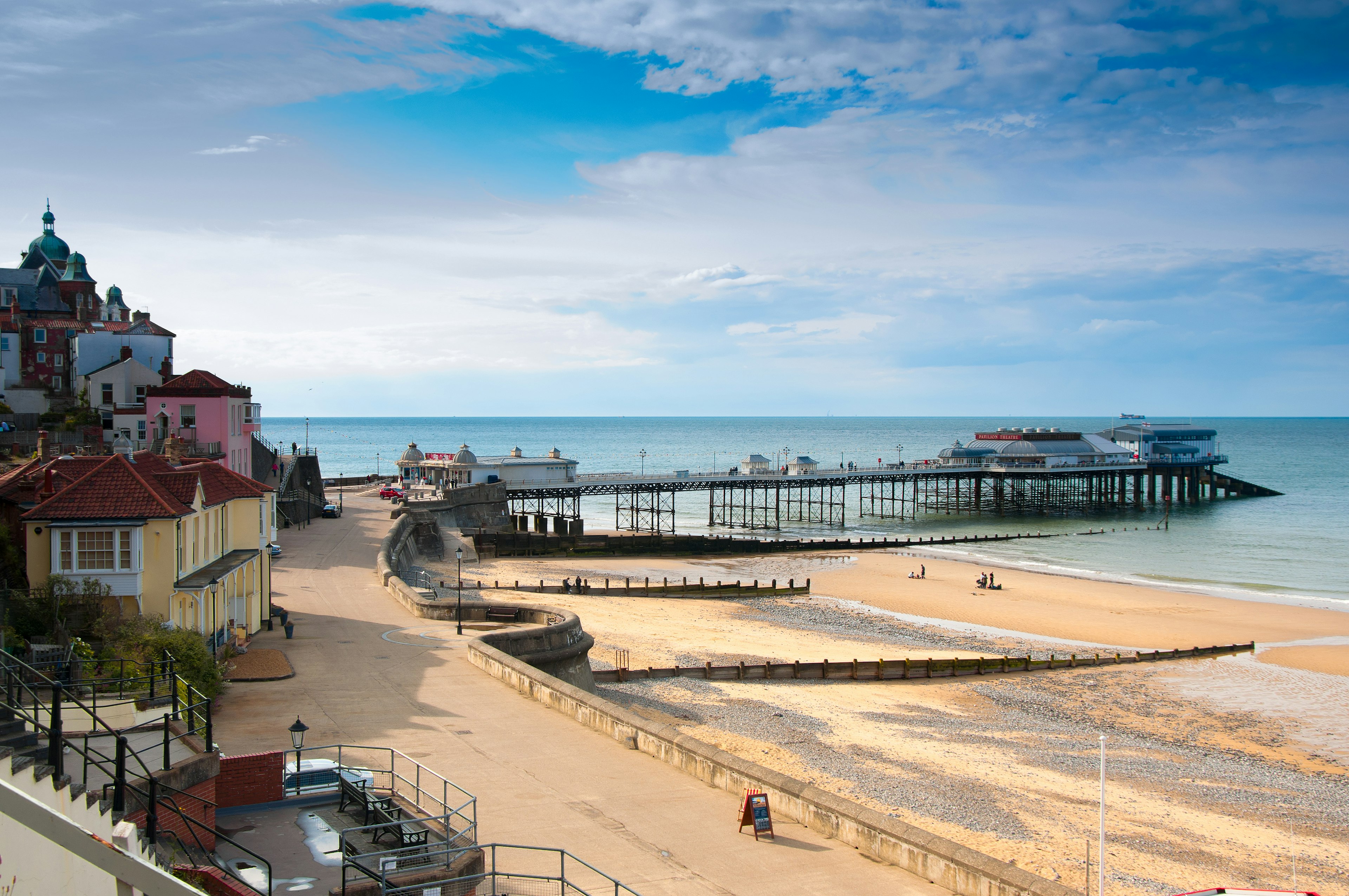Blessed with beautiful beaches, whispering wetlands, a rich culture, and an abundance of history, East Anglia deserves more recognition than it currently receives. Many areas of Essex, Suffolk, Norwich, and Cambridgeshire are accessible from London in less than two hours. Here, the rolling wheat fields and wildflower-laden water meadows provide a tranquil escape to a more serene England. Explore the best things to do in this captivating region.
1. Hit the Beaches
East Anglia features various beaches catering to all preferences—from broad golden sands to quaint shingle strands. Some of the most unspoiled stretches can be found at Wells-Next-the-Sea, Brancaster, and Holkham in Norfolk. For a relaxing walk, visit Aldeburgh in Suffolk.
Local Tip: If you’re with younger children, Wells-Next-the-Sea offers shallow waters perfect for paddling and a convenient beach café behind the dunes.
2. Walk Along the Pier
No trip to the British coastline is complete without a stroll along the pier. Southend in Essex boasts the world’s longest pier, featuring a toy train that traverses its 1.3-mile (2km) length. In contrast, Southwold in Suffolk showcases a unique pier filled with quirky, satirical slot machines designed by Tim Hunkin.

3. Cruise the Broads
The Norfolk Broads, sprawling over 117 square miles (303 square km) of waterlogged countryside, emerged accidentally when floodwaters filled channels dug by peat-cutters. Today, you can cruise these marshy pathways in comfortable motorboats, pausing to enjoy country pubs, historic churches, and eclectic museums along the way.
4. Go on a Pilgrimage
Whether or not you possess faith, hiking Walsingham’s pilgrim trail is a rewarding experience. The historic path, which originates from London, traverses 180 miles (290km) of picturesque English countryside, leading to significant historical sites such as the ruins of Walsingham Priory.
5. Meet the Wildlife
The coastal marshes of Suffolk and Norfolk are home to an impressive range of wildlife, from marsh harriers to bitterns. Bird enthusiasts flock to the rich habitats of RSPB Minsmere and Dunwich Heath, where you can spot a variety of rare species.
Detour: Consider taking a boat trip from Blakeney to observe massive populations of grey seals at Blakeney Point.
6. Get Stuffed in Norwich
The vibrant city of Norwich offers a myriad of museums, historic churches, and delightful eateries. Before exploring, enjoy a sticky bun at one of the local tea rooms, and embark on a culinary journey at some of the finest restaurants serving modern British cuisine.

7. Drop in on a Medieval Village
The picturesque village of Lavenham, consistently hailed as one of England’s most beautiful villages, features a collection of charming half-timbered houses and historic inns rooted in medieval wool money. Explore the Guildhall and Little Hall, which house engaging country life museums.
8. See Constable Country
This iconic region inspired the works of the renowned landscape artist John Constable, who painted “The Hay Wain” at Flatford Mill in 1821. This area remains largely unchanged and provides one of East Anglia’s most beautiful walks along the River Stour.
9. Visit Sutton Hoo
One of East Anglia’s most significant archaeological sites, Sutton Hoo offers a glimpse into the region’s rich history, featuring artifacts from an Anglo-Saxon ship burial. Visitors can explore various displays that reveal intriguing insights about early English history.

10. Catch a Wave in Cromer
While some seaside resorts lean into boisterous festivities, Cromer radiates a peaceful charm. This destination is famous for its seafood, relaxing pebble beaches, and nostalgic pier shows. Families can enjoy beach activities, including swimming and surfing.
Planning Tip: Be sure to try Cromer’s renowned dressed crab, a local delicacy that is a must-try.
11. Drop in on the Alma Mater of Isaac Newton
The University of Cambridge is not only the home of Isaac Newton but has also produced numerous famous alumni. While exploring, be sure to visit the remarkable college gardens and Gothic chapels that showcase centuries of history.
12. Get Cultured in Cambridge
Even the numerous student museums in Cambridge offer substantial collections of national significance. The Fitzwilliam Museum, with its impressive collection of ancient artifacts and art, is a highlight, as is Kettle’s Yard, featuring an interesting art collection.

13. Go Punting on the Granta
While punting may be a Cambridge cliché, it remains an enjoyable pastime. Take a guided tour or rent a punt to explore the college Backs. Venture to Granchester for an iconic experience, where the Bloomsbury Group gathered for leisurely picnics.
14. Graze on Seafood
East Anglia’s coastal relationship is epitomized through its seafood offerings. From succulent crabs in Cromer to exceptionally fresh fish served at beach shacks in Aldeburgh, you’ll find remarkable culinary delights wherever you dine along the coast.
15. Check Out A Stately Home
The region’s rich wool money history has resulted in the construction of stunning stately homes that are often open to the public. Experience the splendor of these remarkable estates while learning about their fascinating histories.




